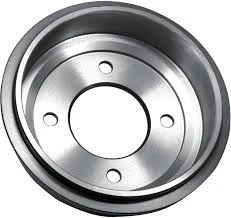
-
 Afrikaans
Afrikaans -
 Albanian
Albanian -
 Amharic
Amharic -
 Arabic
Arabic -
 Armenian
Armenian -
 Azerbaijani
Azerbaijani -
 Basque
Basque -
 Belarusian
Belarusian -
 Bengali
Bengali -
 Bosnian
Bosnian -
 Bulgarian
Bulgarian -
 Catalan
Catalan -
 Cebuano
Cebuano -
 Corsican
Corsican -
 Croatian
Croatian -
 Czech
Czech -
 Danish
Danish -
 Dutch
Dutch -
 English
English -
 Esperanto
Esperanto -
 Estonian
Estonian -
 Finnish
Finnish -
 French
French -
 Frisian
Frisian -
 Galician
Galician -
 Georgian
Georgian -
 German
German -
 Greek
Greek -
 Gujarati
Gujarati -
 Haitian Creole
Haitian Creole -
 hausa
hausa -
 hawaiian
hawaiian -
 Hebrew
Hebrew -
 Hindi
Hindi -
 Miao
Miao -
 Hungarian
Hungarian -
 Icelandic
Icelandic -
 igbo
igbo -
 Indonesian
Indonesian -
 irish
irish -
 Italian
Italian -
 Japanese
Japanese -
 Javanese
Javanese -
 Kannada
Kannada -
 kazakh
kazakh -
 Khmer
Khmer -
 Rwandese
Rwandese -
 Korean
Korean -
 Kurdish
Kurdish -
 Kyrgyz
Kyrgyz -
 Lao
Lao -
 Latin
Latin -
 Latvian
Latvian -
 Lithuanian
Lithuanian -
 Luxembourgish
Luxembourgish -
 Macedonian
Macedonian -
 Malgashi
Malgashi -
 Malay
Malay -
 Malayalam
Malayalam -
 Maltese
Maltese -
 Maori
Maori -
 Marathi
Marathi -
 Mongolian
Mongolian -
 Myanmar
Myanmar -
 Nepali
Nepali -
 Norwegian
Norwegian -
 Norwegian
Norwegian -
 Occitan
Occitan -
 Pashto
Pashto -
 Persian
Persian -
 Polish
Polish -
 Portuguese
Portuguese -
 Punjabi
Punjabi -
 Romanian
Romanian -
 Russian
Russian -
 Samoan
Samoan -
 Scottish Gaelic
Scottish Gaelic -
 Serbian
Serbian -
 Sesotho
Sesotho -
 Shona
Shona -
 Sindhi
Sindhi -
 Sinhala
Sinhala -
 Slovak
Slovak -
 Slovenian
Slovenian -
 Somali
Somali -
 Spanish
Spanish -
 Sundanese
Sundanese -
 Swahili
Swahili -
 Swedish
Swedish -
 Tagalog
Tagalog -
 Tajik
Tajik -
 Tamil
Tamil -
 Tatar
Tatar -
 Telugu
Telugu -
 Thai
Thai -
 Turkish
Turkish -
 Turkmen
Turkmen -
 Ukrainian
Ukrainian -
 Urdu
Urdu -
 Uighur
Uighur -
 Uzbek
Uzbek -
 Vietnamese
Vietnamese -
 Welsh
Welsh -
 Bantu
Bantu -
 Yiddish
Yiddish -
 Yoruba
Yoruba -
 Zulu
Zulu
drum brakes squeak
Understanding and Addressing Drum Brake Squeaks
Drum brakes are a common type of braking system found in many vehicles, particularly older models and smaller cars. While they are generally reliable and effective, it is not uncommon for drivers to hear an annoying squeaking noise when they apply the brakes. This article aims to explore the reasons behind drum brake squeaks and what can be done to address this issue.
Why Do Drum Brakes Squeak?
Several factors can contribute to the squeaking noise associated with drum brakes. Understanding these can help in diagnosing the problem effectively.
1. Brake Dust Accumulation Over time, brake dust can accumulate on the brake shoes and drum. This buildup can create friction that leads to a squeaking sound. Regular servicing can help minimize this issue by ensuring that the brake components are clean.
2. Moisture and Corrosion If a vehicle is parked outside, moisture can accumulate inside the drum brakes. This can lead to rust formation and direct contact between the metal surfaces, resulting in a squeaking noise when the brakes are applied. A thorough inspection can help identify and clean any rust buildup.
3. Wear and Tear Brake shoes and drums naturally wear out over time. As they become thinner, they may not make adequate contact, leading to a squeak. If worn, these components should be replaced to restore effective braking and eliminate the noise.
4. Improper Installation or Low-Quality Components If brake components have been replaced recently, and the installation wasn't done correctly, it might result in poor alignment or insufficient contact, leading to squeaking. Using high-quality replacement parts can also make a significant difference in performance.
5. Glazed Brake Shoes and Drums Excessive heat can cause the surface of the brake shoes and drums to become glazed, leading to reduced friction and a squeaking noise. This can occur due to aggressive driving or repeated heavy braking. If glazing is suspected, the components may need to be resurfaced or replaced.
drum brakes squeak

How to Address Squeaking Drum Brakes
If you've been experiencing squeaking brakes, addressing the issue promptly is essential for safety and comfort. Here are some steps you can take
1. Inspect the Brake System Begin by visually inspecting your drum brake system for signs of damage or wear. Look for cracks in the drums, poor quality brake shoes, or excessive dust buildup.
2. Clean the Brakes If there is a buildup of brake dust or moisture, cleaning the drum brake components can help. Make sure to use appropriate brake cleaner and let everything dry before reassembly.
3. Check for Wear Measure the thickness of the brake shoes and drums. If they are worn beyond the manufacturer’s specifications, it might be time to replace them.
4. Use Anti-Squeal Shims Installing anti-squeal shims can reduce the noise produced during braking. These shims are placed between the drum and the brake shoe to dampen vibration and noise.
5. Professional Help If you are unsure about the condition of your drum brakes or how to replace components, it’s wise to consult a professional mechanic. They have the expertise to diagnose the issue accurately and perform necessary repairs.
Conclusion
Squeaking drum brakes can be more than just an annoyance; they may indicate underlying issues that could affect the performance and safety of your vehicle. Regular maintenance, timely inspections, and quality replacements are crucial in preventing squeaks and ensuring smooth braking. Always prioritize your vehicle's brake system and take action at the first sign of trouble, not just for your comfort but for safe driving practices as well.
-
What Are Drum BrakesNewsJul.07,2025
-
Understanding Brake Drum MaterialNewsJul.07,2025
-
Semi-Trailer Brake Drum: A Key Component for Extreme Loads and Long-Distance TransportNewsJul.07,2025
-
Drum Brake Pads for SaleNewsJul.07,2025
-
Brake Drums for SaleNewsJul.07,2025
-
Brake Drum ManufacturerNewsJul.07,2025
-
Aluminum Brake Drums: The Future of High-Performance CarsNewsJul.07,2025
